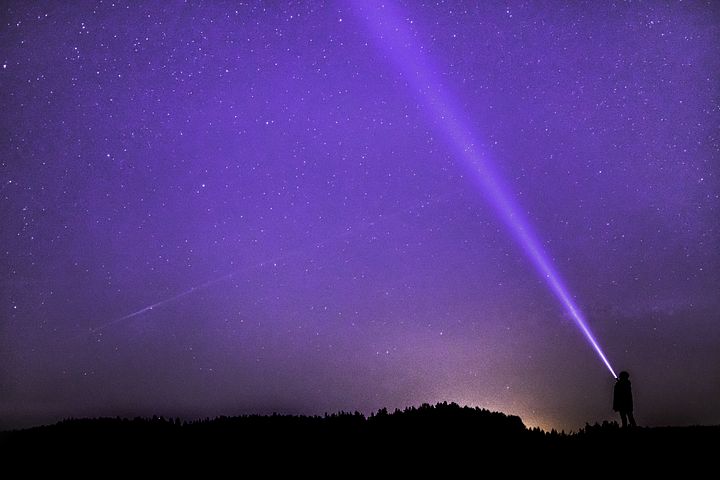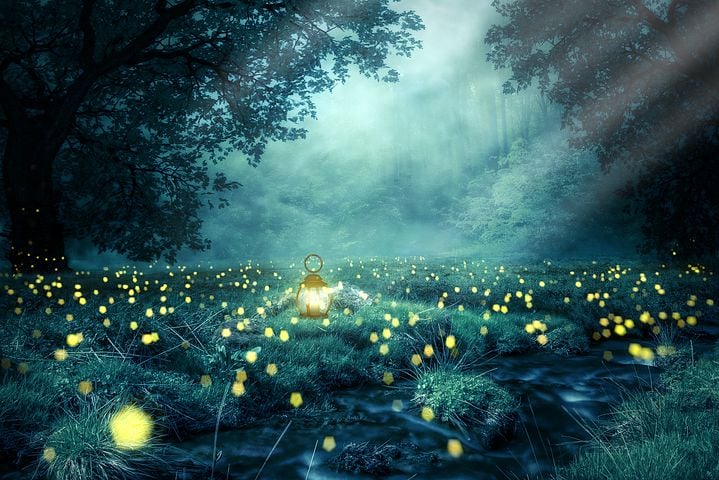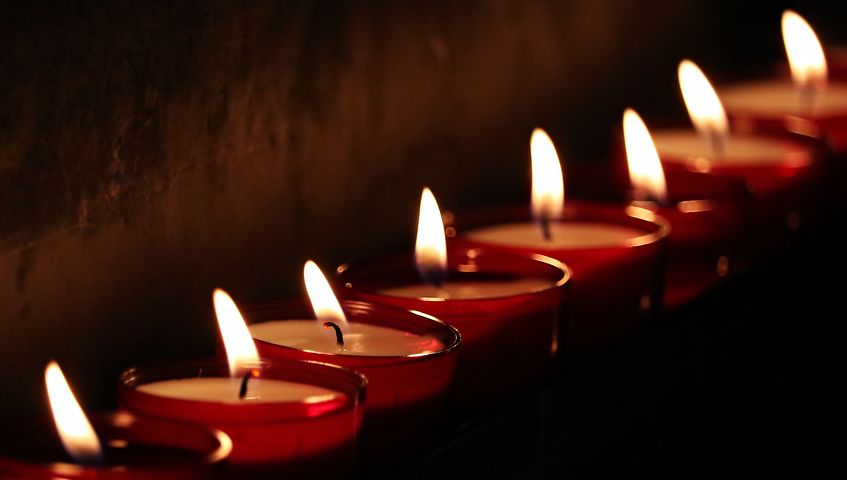Many started the spiritual journey quite early in life. In childhood an essential trust was broken between child and parent– the child learned that they could not be loved and cared for in a way that could carry them through life. They then sought something larger that could sustain them and found in the divine, in nature, what they could not find in humans.
There is a specific type of child that must ask existential questions: why am I here? What is my purpose? Where can I find meaning?
As humans we all seek meaning and purpose in our lives. We are adrift without it. Nihilism never ends well, and the discovery that life is without the inherent meaning that has been offered to us simply allows for us to confer our own meaning and purpose to life.
There is a power in taking back meaning and purpose, in deciding on an individual level what allows for us to live a life worth living.
The way that Western cultures have taken Eastern spiritualities on has focused a great deal on emptiness and concepts like “non-self”. The stripping away process of who we thought we were is an important quest. Moving beyond inherent selfishness and what amounts to small importances in our lives to be redirected to greater perspective is an excellent goal for any spiritual aspirant.
But the stripping away of belief and layers of self is not to find meaninglessness to self and to life. We are not empty vessels, inhuman, or mirages populating a mirage of a world. The stripping away is an uncovering process, one in which we find a grace within our hearts that was there all along.
We find what is true when we release what is false within us.

To put it more esoterically, it is to find both emptiness and fullness. It is by finding this Void, this blankness, that we can pass through emptiness into discovering that meaning and beauty underly everything. Underneath the non-self is the Self. Both can be experienced simultaneously.
These sorts of paradoxes are difficult for the intellect; they can only be felt. I find that emptiness has been focused on to such a degree in Western culture because we struggle with a soullessness that has permeated our culture. The idea of stripping everything away– including identity- is readily fueled by ideologies that nothing is real and that nothing really matters anyway.
It is in that place of nothingness that so many stagnate, as it echoes the wounds of an ego that is unable to feel the sort of faith and connection that it longs for.
So many do not know who they are because they have not had the chance to go through the initiations of childhood, adolescence, and adulthood fully. We are a world without spiritual initiation and the rites that symbolically carried us from one stage of life to another are absent, or empty and performative. It is in large part due to these initiations that we formulate our identity.
We must feel safe and ready to fully move from infancy to toddler, from toddler to child, from child to adolescent, from adolescent to adult, and from adult to elder. It is easy for parts of us to remain stuck at any of these junctures. Spiritual healing integrates these stagnated selves with the adult self, and allows the uninitiated inner child to complete any missing rites.

To be ourselves we must let go of the dream that others have of us and discover who we truly are. Underneath the expectations, the projections of parents and community and pop culture lies a Self that is true and pure and innocent in its knowing of who it is.
The ultimate paradox is that spiritual awakening is simultaneously about connecting to all that is while also discovering who we as an individual are.
On the spiritual path people find what they are looking for. If our wounded ego desires inflation, to feel separate and special, to play the game of superiority-inferiority, that is where the spiritual path will lead.
If people are looking for something deeper and truer and to find connection and meaning in something larger than themselves, they will find that.
That latter is a catalyst for a healing process in which the wounds and layers of condition and culture release. The armoring and defense mechanisms against vulnerability, against softness, against connection release layer by layer.

One of the biggest questions in my work as spiritual healer is to question where and how someone is disconnected. Are they disconnected from themselves, from other people, from the earth, sky, and the divine… each of these is a source of deep nurturing and it is by connecting to them that our faith and trust in ourselves and one another is re-formed.
The end of the spiritual path is the ability to be totally and utterly human. In this the quest can be let go of and a state of simplicity can rise. In this discovery, we can feel that our prior quest was propelled by a feeling of wrongness, of “not-enough”-ness. We can settle into the knowledge that we are lovable and worthy and acceptable exactly as we are.
Faith is a felt thing, a heart-based thing, and it is by venturing into our bodies and reclaiming our soul that we can know it. We can enter deep relationship with it and feel sustained.
There are many ways that people find there way to this type of faith. The sincere need for it is one of the largest catalysts to finding it. In the pain and suffering we have experienced as humans we turn to the divine for comfort, for solace, and for connection.
It is in this connection that we find grace. The light and beauty of the world return to a world that is so often so dark, so cold, and so dismal. In this light we do not turn away from suffering, but rather recognize it as a part of existence. As there is beauty there is also pain. There is light within dark, and dark within light.
By being able to see the light in the world, we can see the essential goodness. The fullness. Meaning returns, and we are able to turn towards the light, fully seeing ourselves and the world for what they are.
Mary Mueller Shutan is a spiritual teacher and author of several books, including The Spiritual Awakening Guide and The Body Deva.
You can sign up for her mailing list here to learn of new blogs as well as to be updated regarding courses, books, and other news.

Hi Paul-
I do love anger. Underneath it is so much vitality and passion. Thanks for sharing!
Humble monotheism….. Only of myself am I a god.
Nihilism energy was certainly a challenge to learn to navigate, and finally enjoy. As anger has been.
Hi Barry-
Glad the blog resonated with you. That definitely is the wonderful part of initiating fully into adulthood and elderhood is that release and freedom. Thanks for sharing!
Great to read this,just about everthing I can relate to.I’m moving from adult to elder and in doing so I am again experiencing the freedom and joy of the infant/toddler stage.I now have wisdom and strength to be as carefree as an infant while aware of the dangers.
The void is only half of it,everything has and needs its opposite.The paradox is that the void exists.